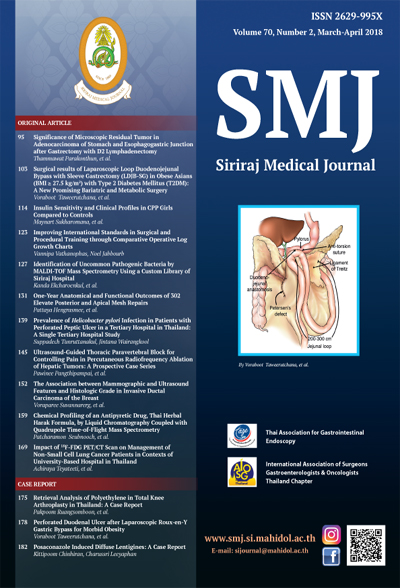One-Year Anatomical and Functional Outcomes of 302 Elevate Posterior and Apical Mesh Repairs
Keywords:
Complications; Elevate Posterior and Apical mesh; objective cure; pelvic organ prolapse; recurrence rates; success rate; surgical outcomesAbstract
Objective: POP occurs as a consequence of fibromuscular and endofascial weakness. Women with prolapse often have global support defects causing difficulty in identification and repair. Fascial plication and levatorplasty in
rectocele repair can cause over-narrowing of vagina and introitus leading to dyspareunia. Mesh reinforcement is used to correct multiple defects while avoiding vaginal narrowing. Although literatures have reported encouraging
results of vaginal mesh repair, the use of mesh in posterior compartment is still controversial. Elevate system® has been developed as a minimally invasive method for mesh augmentation. Our objective is to evaluate outcomes of
Elevate Posterior and Apical mesh in the posterior and apical prolapse repair.
Methods: We conducted a prospective study of 302 women undergoing Elevate Posterior mesh reconstruction between 2009 and 2015. Demographic and peri-operative information were recorded. Pre- and post-operative
evaluation included symptom, quality of life and POP-Q assessment. Differences in quality-of-life and POP-Q scores were demonstrated using paired t test. Objective cure rates, symptom resolution, quality-of-life measures
and peri-operative morbidities were evaluated.
Results: Three-hundred women had posterior vaginal prolapse while 131 had apical descent. Mean operative time was 87±21 minutes. Bleeding complication occurred in 9 while mesh extrusion occurred in 3 women. Significant
symptom and quality-of-life improvement were demonstrated at one year. Objective cure rates of Elevate Posterior mesh in the treatment of posterior vaginal and apical prolapse were 93.7% and 92.4% respectively.
Conclusion: Elevate Posterior and Apical mesh reconstruction has delivered impressive clinical outcomes for the treatment of posterior vaginal and apical prolapse.
Downloads
Published
How to Cite
Issue
Section
License
Authors who publish with this journal agree to the following conditions:
Copyright Transfer
In submitting a manuscript, the authors acknowledge that the work will become the copyrighted property of Siriraj Medical Journal upon publication.
License
Articles are licensed under a Creative Commons Attribution-NonCommercial-NoDerivatives 4.0 International License (CC BY-NC-ND 4.0). This license allows for the sharing of the work for non-commercial purposes with proper attribution to the authors and the journal. However, it does not permit modifications or the creation of derivative works.
Sharing and Access
Authors are encouraged to share their article on their personal or institutional websites and through other non-commercial platforms. Doing so can increase readership and citations.











